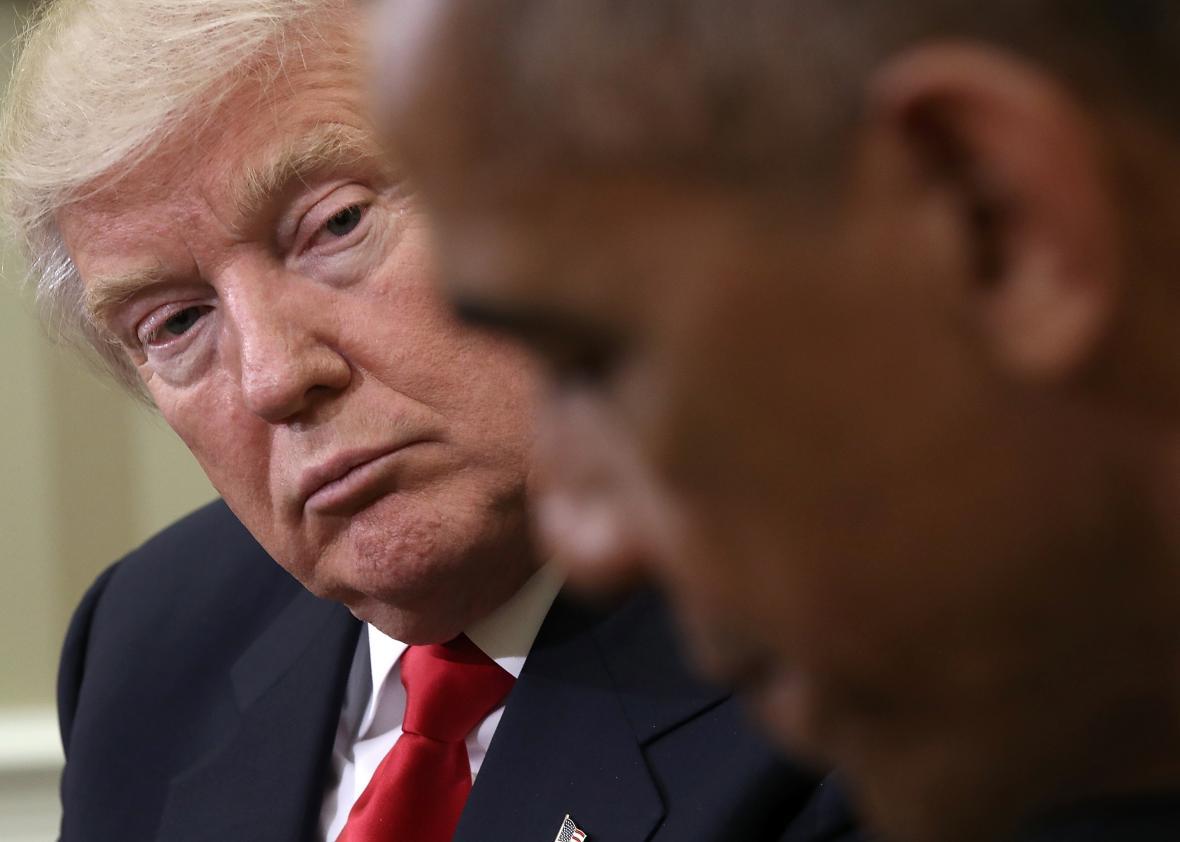Should young people consider careers in national security even when they are nauseated by the idea of a Trump administration? That’s a question I’m hearing from my students in a way I’ve never experienced in almost two decades of teaching.
Young people seeking careers in government are often highly idealistic. They often disagree on policy but in general agree that America’s leadership is good for our country and for the world in general. And many of them still join the ranks of the intelligence community, diplomatic corps, Department of Defense, and other national security jobs despite receiving lower pay than they would get in the private sector, navigating a dysfunctional clearance and hiring process, and dealing with a frustrating bureaucracy in general. But in this case, Trump’s campaign rhetoric—especially regarding foreign policy—challenged the idea of American engagement in the world and the nobility of government service.
This divide is not the usual partisan bickering. Of course Democrats are dismayed by Tuesday’s election results, but they are not alone. Back when the campaign began in earnest, a group of serious Republican national security experts rejected the GOP nominee in an open letter, declaring him dishonest, authoritarian, naïve in his foreign policy views, and in general unfit for office. I agree with their sentiments, and I admire them for putting country and principles above their careers.
But I believe it would be a disaster if our best and brightest rejected the government altogether. The world remains a troubled place. Whether the issue is terrorism or climate change, Russian aggressiveness or crime in Mexico, what happens overseas still matters for Americans. Some threats directly affect our security at home, while others endanger our interests abroad. We need civil servants to advise the new administration on what is best and to carry out policies effectively. The Trump administration may ignore them. But if the administration’s policies and assumptions quickly fail, in at least some cases they will listen to those who offer a better course.
Someone will serve, and we want educated people of principle to do so. Indeed, in contrast to past elections, education proved a key divide, with educated voters supporting Hillary Clinton by far greater margins than they supported Democrats in the past. If only Trump supporters seek out government work, then its ranks will be impoverished.
A strong civil service is also a means to correct the worst impulses of political appointees. I urge students to think about when they would resign. In any job, one can be asked to do unethical things, turn a blind eye to wrongdoing, or otherwise simply go against a person’s principles. In national security, the consequence can be literally life and death. Although it is tempting to judge President-elect Trump by his words and resign in advance, as national security expert Benjamin Wittes argues, “resignations in response to illegal orders are far more powerful than preemptive resignations.”
A less capable government that attracts second-class employees creates a dangerous circle. Policies become less informed, and they are carried out poorly even when the principles behind them are right. Incompetence spreads, and fewer skilled people want to join.
Entering the ranks of the civil service, especially at a low level, is also different from joining at a high political level. Although we expect our high-level political appointees such as assistant secretaries of state or undersecretaries of Homeland Security to also defend the Constitution and respect the rule of law, we also see them as partisan—which is why each election should yield a new crop of political appointees as well. If, like the senior-level Republican signatories of the open letter criticizing Trump, you reject what the president-elect stands for, you should not serve in his administration. Meanwhile if you are a junior- or entry-level recruit analyzing information about another country’s politics, meeting with junior foreign government counterparts, or helping figure out which weapons systems to buy, you are likely to be implementing policy, not deciding it, and even then your influence will be marginal (sorry, maybe not my best selling point).
But this influence will grow, and young people aspiring to serve our country should remember that if they enter government upon graduation from college to work in a Trump administration, they will be no older than 26 (if Trump serves just one term) or 30 when he leaves office. Future administrations and our country will suffer if our best and brightest sit this one out.
